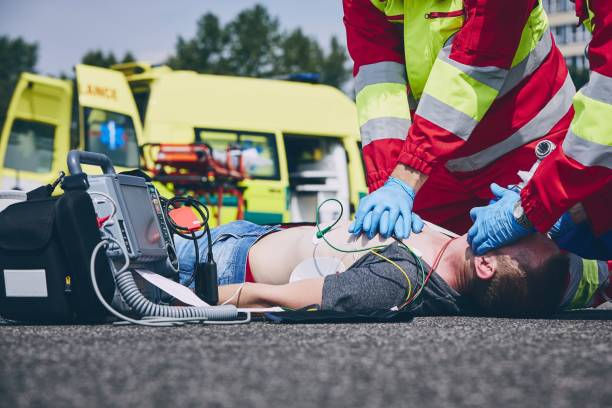Current Challenges in Emergency Response and How EmergencyID Can Help
- anishpoosa
- Mar 8
- 3 min read
In times of crisis, every second counts. Emergency responders often face significant challenges when trying to obtain critical patient information, especially if the person in need is unconscious or unable to communicate. Miscommunication, lack of access to crucial medical details, and the inability to quickly notify emergency contacts can mean the difference between life and death. Recognizing these challenges.
The Challenges in Emergency Response
Lack of Immediate Access to Medical Information - First responders often have to rely on medical IDs, bracelets, or even bystanders for crucial patient details, which can be incomplete or missing altogether.
Delayed Communication with Emergency Contacts - Family members or emergency contacts may not be informed quickly, leaving them unaware of their loved one’s condition.
Difficulty in Identifying Patients - If an unconscious patient has no identification, responders struggle to access relevant medical history.
Privacy and Security Concerns - While it’s essential to store medical information for emergencies, safeguarding personal data from misuse or unauthorized access is equally crucial.
Limited Availability of GPS Location for Quick Assistance - First responders sometimes struggle to locate patients, especially in remote areas or during large-scale incidents.
Inability to Edit Medical Information Easily and Securely - Keeping medical data up to date while maintaining security can be challenging.
Dependence on Paper-Based Records - Many emergency situations still rely on paper-based medical histories, which are inefficient and prone to errors.
No Universal System for Storing Critical Medical Information - Different hospitals and emergency services have varying databases, making patient information retrieval inconsistent.
Time Lost in Verifying Allergies and Pre-Existing Conditions - An unconscious patient’s allergies and conditions are crucial to avoid medical errors, but responders often lack access to this information.
Lack of a Centralized Emergency Response Solution - A single, secure, and efficient system for storing and retrieving emergency medical information has been missing—until now.
How EmergencyID Solves These Challenges
EmergencyID is a game-changing mobile application designed to store crucial patient data on a user’s lock screen, allowing first responders to access life-saving information instantly. Here’s how it addresses the challenges:
Instant Access to Medical Data from the Lock Screen - Without unlocking the phone, responders can view essential medical details like allergies, blood type, medical conditions, and emergency contacts.
Automatic Alerts to Emergency Contacts - As soon as a first responder finds the device and accesses EmergencyID, it sends an automated message with the user’s GPS location to their emergency contacts.
Secure Data Control with User Customization - The app gives users the ability to choose what information is displayed on the lock screen, ensuring privacy while still being useful in emergencies.
Face ID or PIN Authentication for Editing Data - To prevent unauthorized access or tampering, users must verify their identity before making any changes to their profile.
GPS Tracking for Faster Assistance - The app uses real-time location services to help first responders find patients quickly, reducing delays in care.
Paperless, Digital Medical Records - EmergencyID replaces outdated paper-based medical IDs with a modern, digital solution that is always accessible.
Standardized and Universally Accessible - The app is designed to work with any smartphone, ensuring seamless access to critical data regardless of location.
Encrypted Data Storage for Privacy Protection - User information is securely encrypted to prevent data leaks and unauthorized access.
Integration with Emergency Services - EmergencyID can be integrated with hospitals and paramedic teams for better coordination and quick data retrieval.
A Comprehensive Emergency Response System - By combining GPS tracking, medical data storage, and instant contact alerts, EmergencyID provides an all-in-one emergency solution.
Conclusion
EmergencyID is revolutionizing emergency response by providing a secure, easy-to-use platform for storing and accessing life-saving medical information. By balancing accessibility and privacy, it ensures that responders get the crucial data they need while protecting user confidentiality. In an emergency, the right information at the right time can save lives—EmergencyID makes sure it’s always available when it matters most.




Comments